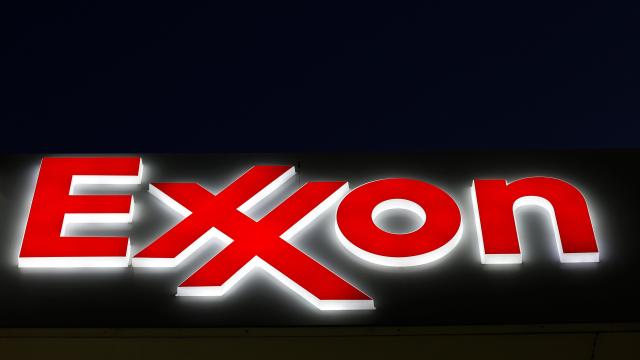ExxonMobil knew even more about how damaging climate change is than we thought, a study out this week shows.
In 2015, journalists obtained a trove of internal documents related to ExxonMobil’s work on climate change and published a series of investigations into how the company’s external PR didn’t match its internal research. “Exxon Knew,” which refers to the idea that Exxon knew about climate change and its dangers while continuing to mislead the public and perpetuating climate denial, has become a catchphrase of the climate movement. Much of the subsequent reporting and research into the uncovered Exxon documents has focused on how Exxon funded and encouraged climate denial while sitting on concrete knowledge of how its product causes climate change.
But Exxon wasn’t just listening to external scientists — the company had its own scientists working on creating models and projections. And until this week, no one had actually taken the models out for a test drive to see how they performed. As a paper published Thursday in the journal Science shows, it turns out they performed scarily well.
“We knew Exxon knew, but this is like Exxon knew 2.0,” said Geoffrey Supran, the study’s lead author and an associate professor at the University of Miami. “It produces an airtight and statistically rigorous insight into what [Exxon] knew in a way that is academically intriguing but also practically useful.”
As Supran told Earther, the genesis for this study actually happened on Twitter. After the Exxon documents became public and Supran and others began publishing peer-reviewed articles around their content, other scientists and users on Twitter began overlaying graphs included in the archives with actual warming projections, noting how accurate the Exxon predictions appeared to be.
“We realised that [despite] all of the scrutiny of Exxon’s climate rhetoric by us and others, the company’s actual climate projections, their actual data, the graphs had never actually been assessed,” Supran said. This study, he said, is an attempt to correct that — in other words, “a peer-reviewed meme.”
For their research, Supran and his colleagues collected all the climate projections and models produced by Exxon scientists and quantitatively tested them against historical climate observations with two different established techniques used by the Intergovernmental Panel on Climate Change, a leading global scientific body. They then rated these models on “skill score,” or a measurement that tests the predictive skill of the model.
The study found that, throughout the late 1970s and early 1980s, ExxonMobil’s models “correctly and skillfully” predicted warming and were between 63% and 83% “accurate in predicting subsequent global warming”; the average amount of warming predicted by Exxon each decade is about the same as government and academic models created between 1970 and 2007. In fact, Exxon’s models rated slightly higher on “skill score” than those of NASA scientist James Hansen, one of the most celebrated climate scientists, which he famously presented in front of Congress in the late 1980s to sound the alarm on climate change.
“We’re not critiquing Jim Hansen — it’s a helpful way of giving people context,” Supran said. “It’s a compliment of Exxon’s climate modelling, which was at least comparable in performance to that of one of the most influential and well-regarded climate scientists’ of all time.”
And Exxon didn’t just correctly predict temperature rise. As the paper shows, the company’s scientists also “correctly dismissed” the idea of another ice age; accurately pegged the date in which human-caused climate change would become observable (around 2000); and “reasonably estimated how much CO2 would lead to dangerous warming.”
Since the initial release of the Exxon documents in 2015, there’s been increasing public scrutiny on the misleading messaging and outright lies from Exxon and the fossil fuel industry at large, as well as numerous lawsuits brought by cities, states, and counties against oil companies for their role in perpetuating climate denial. The industry has been trying out different tactics to strike back: Recently, Chevron tried to claim in a court filing that since cartoons and TV shows in the 1990s mentioned climate change, oil companies couldn’t possibly be blamed for perpetuating denial. (Exxon, for its part, has a whole website devoted to explaining its side, where it attacks Exxon Knew as “a coordinated campaign perpetuated by activist groups.”)
Even though Supran has been working with these documents for years, he said even he was surprised at the accuracy of Exxon’s predictions — and he hopes this hard data could be useful in combatting further misinformation down the road.
“It kind of takes your breath away because you realise, they didn’t just vaguely know something, they weren’t just toying around with this,” he said. “They were helping to advance this field. They knew as much as anyone, and arguably they knew what they needed to know.”
